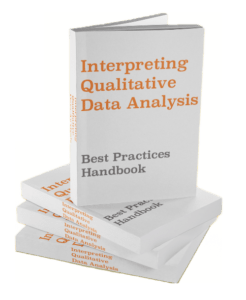Do you write “data are,” or “data is”? What is a “datum”? Is it pronounced “day-tuh” or “da-tuh”? How is this different across industries and cultures? This article shows you how to write and pronounce the word “data,” and how it differs across cultures.
Plurality: “Data are” vs. “Data is”
Strictly speaking, data is a plural word. The correct form of the verb that accompanies it must therefore be in the third person plural (they). Here are some common examples of data + a verb:
- The data are
- The data act
- The data show
- The data represent
- The data communicate
With that said, in common speech, we consider “data” a singular word. Why? It’s just easier to speak and write that way. You most often see data + verb pairs as follow:
- The data is
- The data acts
- The data shows
- The data represents
- The data communicates
Data isn’t exceptional. English speakers use a number of plural words in singular form. It’s a natural evolution of the language, and because there is no governing body of the English language (such as French’s The French Academy), it’s hard to say whether we should lend more credit to the dictionary, or the people who actually speak the language! Here are some other examples courtesy of Dictionary.com:
- Spaghetti (singular spaghetto)
- Kudos (singular kudo)
- Graffiti (singular graffito)
- Algae (singular alga)
- Paparazzi (singular paparazzo)
- Confetti (singular confetto)
- Dice (singular die)
Data vs. Datum
Coming back to data, the question remains: if data is plural, what is it’s singular form? Datum is the singular of data. Used correctly in our examples, it would be:
- The datum is
- The datum acts
- The datum shows
- The datum represents
- The datum communicates
So what does this mean for you? Don’t worry, it shouldn’t change much. Ultimately, it’s up to the individual or the organization to decide if they want to “go by the book” and use data as a plural noun. However, most publishers and organizations prefer to use it as their readers do: the the singular.
Don’t forget, you can access the 67 data skill and concepts checklist for free to ensure you’ve got your bases covered.
Pronunciation: “day-tuh” vs “da-tuh”
As with plurality, the correct pronunciation of “data” and the common way it is pronounced are in conflict. “Day-tuh” is correct, and “da-tuh” is incorrect. Here are two audio files so you can hear the difference:
The Correct Way, “day-tuh”:
The Incorrect Way, “da-tuh”:
Strictly speaking, data should be pronounced “day-tuh.” This pronunciation relies on the rule of open and closed syllables in English. When a consonant (letter other than a, e, i, o, or u) begins the word and is followed by a vowel (a, e, i, o, or u), the default pronunciation is to reflect the alphabetical sound of the vowel (i.e how you say it while reading the alphabet such as “a” “b” “c” etc.). This is a an open syllable.
We can close the syllable by 1. immediately ending the word with a consonant or 2. adding a double consonant after the vowel, in this case “tt” after the “da.” If the word, thus, were written “datta,” then it would be a closed syllable and the pronunciation would be “da-tuh.”
Here are some examples in which an open syllable becomes closed either by the end of the word or a double consonant:
- Rate/rat
- Bute/but
- Bode/bod
- Paste/past (the “e” functions as a syllable closer here)
Data Pronunciation in the USA, in the UK, and in Europe
Regardless of which pronunciation is correct, the “common way” of pronouncing data differs between cultures. In the United States, it goes both ways. Some people say “day-tuh” and others say “da-tuh.” Both are acceptable. As an American, I can assure you that you can use either one.
However, analysts in the United Kingdom, which includes England, Northern Ireland, and Scotland, typically use the grammatically correct pronunciation: “day-tuh.”
In continental Europe, English is a second language. As such, Europeans generally defer to both USA standards and UK standards. Because of the mix, either pronunciation is acceptable. As an American living in Europe and speaking French, I can assure you the both pronunciations are acceptable.


